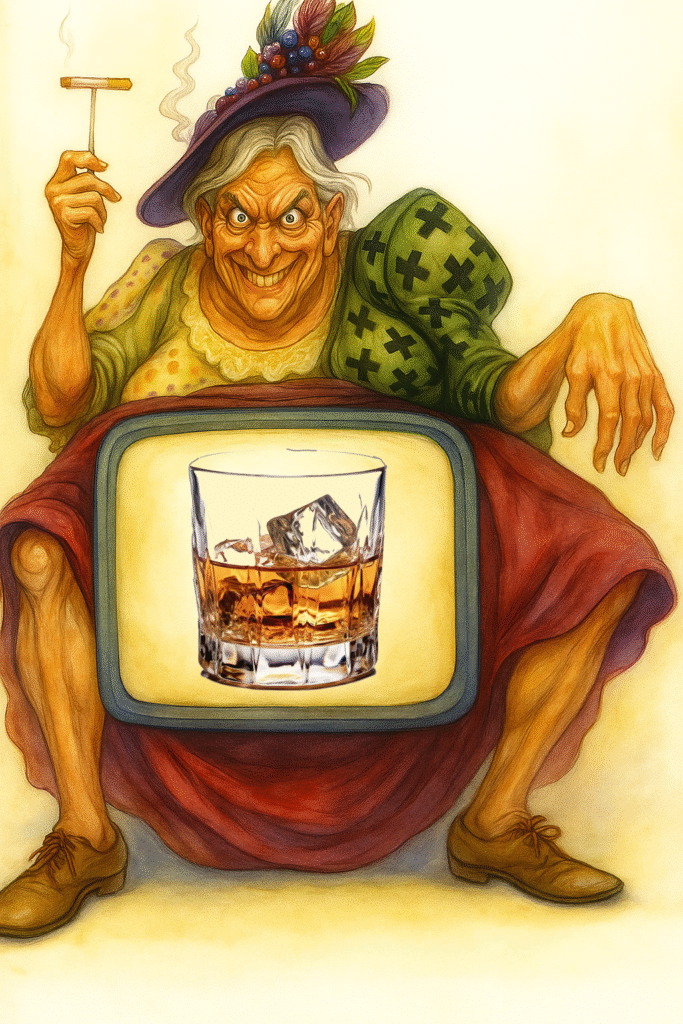We all know someone — or have heard stories — about that old uncle who drinks whiskey every night, or the grandmother who smokes a pack a day but lives to 95. These stories puzzle us because they seem to break every rule we’ve been taught about health. If smoking and heavy drinking are so dangerous (and they are), how come some people seem to dodge the consequences and live so long?
While these cases are the exception, not the rule, they offer interesting insights into human longevity. Let’s look at some reasons why a few people might survive and even thrive despite unhealthy habits.
1. Genetics: The Luck of the Draw
The biggest factor that may help some people beat the odds is genetics. Studies show that longevity often runs in families. Certain people are born with genetic variations that protect them from common age-related diseases like heart disease, cancer, and stroke.
For example, some people have genetic mutations that allow them to process toxins more efficiently, or repair damaged cells better than most. In these individuals, smoking and alcohol still cause harm, but their bodies are more equipped to fight off or delay the damage.
This doesn’t mean these habits are safe — it just means some people get extremely lucky in the genetic lottery.
2. Different Definitions of “Heavy”
When we hear “smoker” or “drinker,” we might assume chain smoking or daily binge drinking. But many of these long-lived individuals smoke fewer cigarettes than we imagine or drink in moderation compared to today’s heavy consumption standards.
A person who smokes a few cigarettes a day and drinks a glass of wine with dinner isn’t the same as someone going through two packs and a bottle of vodka daily. The amount and frequency matter. Some centenarians labeled “smokers” or “drinkers” might actually have consumed much less than assumed.
3. Lifestyle Balancing Acts
Many older people who smoked or drank also led active lifestyles. They may have worked outdoors, walked everywhere, gardened, or otherwise stayed physically active well into old age. Physical activity helps maintain heart health, lung function, and muscle strength.
Additionally, they might have had diets rich in whole foods, homegrown vegetables, and minimal processed junk. In rural or traditional settings, even if someone smokes or drinks, they often still eat home-cooked meals, sleep better, and spend time outside — factors that add up.
Social connections also play a big role. People who have strong community ties, purpose, and support systems tend to live longer, regardless of other habits.
4. Attitude and Stress
There’s a theory that personality and attitude can influence health. People who are more optimistic, easy-going, and less stressed might be more resilient to certain health risks.
While stress doesn’t cancel out the chemical damage from smoking or drinking, chronic stress has its own serious effects on the body. A relaxed, socially connected person might avoid some stress-related illnesses, slightly tipping the odds in their favor.
5. Survivor Bias
We often hear about the rare cases of smokers and drinkers who reach old age, but we don’t hear about the millions who don’t make it. This is a classic example of survivor bias — focusing on those who survived while ignoring those who didn’t.
For every 95-year-old lifelong smoker you hear about, there are countless others who died in their 50s and 60s from lung cancer or heart disease. These stories stand out precisely because they are rare and surprising.
6. Medical Advances
Some older individuals benefited from modern medicine. They may have received good healthcare, caught early signs of disease, or taken medications that offset some risks. For example, if someone with a smoking history gets frequent screenings and catches lung cancer early, they have a better chance at survival.
Access to antibiotics, surgeries, and other treatments also helps people survive infections or heart problems that would have killed earlier generations.
7. Misreporting or Memory Gaps
Sometimes, people overstate or understate their habits. A person might claim they drank daily when in reality it was a weekend ritual. Or they might exaggerate smoking to seem tough or downplay it because of social stigma.
Anecdotes can also get distorted over time, especially when told by relatives or friends.
The Real Takeaway
It’s important to be clear: smoking and excessive drinking are major risk factors for early death and serious disease. No one should take these long-lived smokers and drinkers as evidence that these habits are harmless.
The rare cases who live into their 90s while smoking or drinking are statistical outliers. They don’t represent what will happen to most people. In fact, large studies consistently show that smoking cuts life expectancy by at least 10 years on average, and heavy drinking is tied to liver disease, cancer, accidents, and mental decline.
Lessons We Can Learn
While the habits themselves aren’t worth imitating, there are lessons to draw from these elders’ lives:
-
Social connections matter. Many long-lived people maintain strong family and community ties.
-
Staying active helps. Even if they smoked, many walked a lot or worked physical jobs.
-
Balanced diets can counter some risks. They often ate simple, whole foods and avoided processed junk.
-
Genetics play a big role. Unfortunately, you can’t control this, but it highlights the unpredictable nature of health.
Conclusion
When we hear about a 100-year-old who smoked cigars and drank whiskey daily, it’s easy to think they found some magic loophole. The reality is far less glamorous. They are the lucky few who beat the odds, but most people won’t.
Rather than using these rare stories as an excuse to keep smoking or drinking heavily, we can view them as fascinating examples of human variability. If anything, they remind us that health is a mix of genetics, lifestyle, environment, and chance.
For most of us, the surest path to a long and healthy life still includes quitting smoking, moderating alcohol, staying active, eating well, and staying socially connected. The old rebel who smoked and drank every day? She might make a good story at a family dinner, but she’s not the blueprint to follow.




